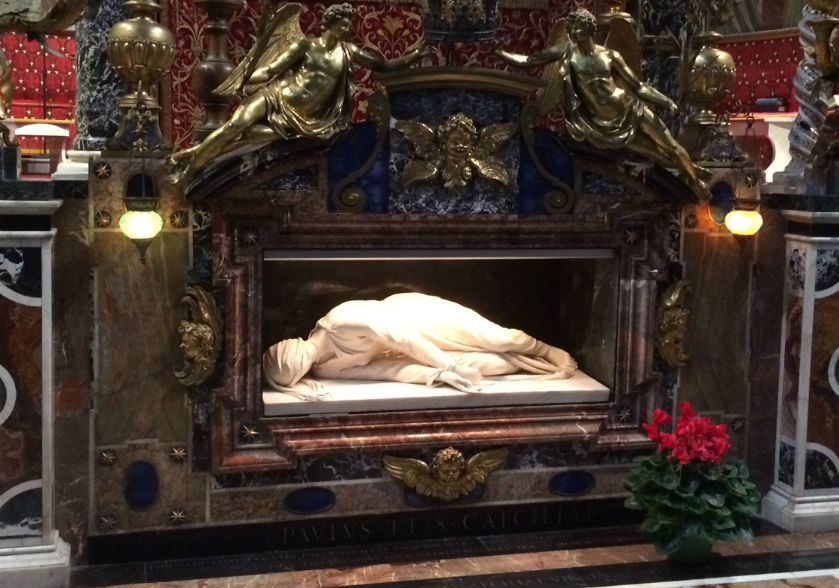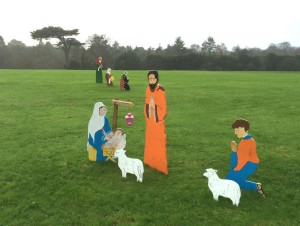Today, 22 November, is St Cecilia’s Day. Many of us think of music on this day and, in many places, recitals and concerts will be held in honour of St Cecilia.
The feastday gives us an opportunity to reflect on the role of music in our lives whether it be a classical piece, some New Orleans jazz, or a rap. Music has the power to move us in a way which few other art forms move us, or so many of us. The full-throated singing of the French National anthem at several functions in the wake of the killings in Paris spoke in a way which surpasses mere words. The musicians of Sarajevo spoke to us from their war-torn city. A song can bring to the surface emotions which we thought were long forgotten. We use music for all sorts of celebrations.
We thank God for the gift of music and pray for musicians everywhere who brighten our world and bring together the human and spiritual.
The image is of St Cecilia in the church called after her in Rome, St Cecilia in Trastevere. It is by Stefano Moderna (1576 – 1636) who tried to represent events which had just happened to his subject. This explains the naturalistic pose of the dead Cecilia.
There are many legends about Cecilia and of how and where she was martyred. One of the most reliable is that of Venantius Fortunatus, the Italian poet who became bishop of Poitiers in the late fifth century and says that she died in Sicily in the time of Marcus Aurelius, Roman Emperor from 161 to 180 AD.


